
 Legend has it that the 9th Roman Legion disappeared without trace after marching north of Hadrian’s Wall into the Scottish hinterland. Stuart Lancaster likes his history, and will warn his side that it is not just the Romans who have came unstuck on Scottish soil, with more than a handful of over-confident England teams suffering the same fate.
Legend has it that the 9th Roman Legion disappeared without trace after marching north of Hadrian’s Wall into the Scottish hinterland. Stuart Lancaster likes his history, and will warn his side that it is not just the Romans who have came unstuck on Scottish soil, with more than a handful of over-confident England teams suffering the same fate.
The most jarring of those defeats came in the 1990 Five Nations when England, having swept all before them in impressive style, arrived in Edinburgh as hot favourites to win a Grand Slam showdown against Scotland.
Unlike Will Carling’s imperious English side, the Scots had scrapped and scuffed their way to an unbeaten run – but, sharper in thought and deed on the day, they squeezed out a narrow victory at
Murrayfield to send Carling and company home ‘tae think again’.
Helping to navigate Scotland successfully through that storm was Craig Chalmers, a young fly-half in the infancy of a 61-cap Test career. Chalmers played against the English another nine times without winning again as the men south of the Wall exacted revenge for the reverse.
However, that wealth of experience makes Chalmers, who is now backs coach at Esher, uniquely well qualified to talk about the special alchemy of Calcutta Cup clashes. It also gives him a real insight into why No.10 has turned into a problem position which has had a succession of tartan coaches tearing their hair out, and has been a key component in Scotland’s long-standing try drought.
Chalmers is measured in his assessment of Scotland’s chances, but says he is optimistic because of their home record against England since the mid-Noughties. He points to the Scottish victories at Murrayfield in 2006 and 2008, the draw in 2010, and the against-the-grain English victory in Lancaster’s first game in charge two years ago as evidence that the gap between the ancient rivals is no chasm.
“There is always a good expectation in Scotland going into the Six Nations, but the big thing is getting off to a good start.
Scotland have been reasonably successful against England at Murrayfield in recent seasons, but the real question is how creative we can be in addressing the try issue – because you need to score tries to win games.”
Chalmers pinpoints the failings at No.10 as being down to those who have failed to pick up the mantle, rather than to coaching issues: “At fly-half it is the players in the shirt who have to take responsibility. They have to go and grab it, and hold onto it. International rugby is about pressure, and at 10 you have to accept you are either the good guy or the bad guy.”
According to Chalmers the incumbent, the Glasgow Warriors fly-half Duncan Weir, could solve the problem following Ruaridh Jackson’s demotion. “Duncan is a confident young guy who is more of a kicking stand-off at the moment. I like him, but under pressure he reverts to standing a bit too deep. He has to play flatter and challenge the gain-line to get his line moving.
“Ruaridh (Jackson) has missed out because he is inconsistent. He wants to run and play flat, but there is a time and place. If it’s slow, rubbish ball then you kick for the corners or put it in the air – it’s a question of game management.”
Chalmers adds, “It’s to do with confidence, and that’s to do with consistency of performance. If (head coach) Scott Johnson can get that rather than the 10 minute spells when Scotland give away soft, easy points then they can improve.”
However, he believes that a remedy to the low try-count is within sight.
“There is some talent in the Scottish backline. Stuart Hogg has come back strongly from injury, and Sean Lamont seems to be getting better the older he gets. I’m also looking forward to seeing Alex Dunbar in the centre. He is a talented youngster – big, but not just a basher, because he can offload too.
“Duncan Taylor has staked a claim at inside-centre but I expect Matt Scott will come back into the 12 shirt. He has played a lot at 10 so he has a kicking game, but what makes him stand out is that he is a good distributor who works hard.
“With Tim Visser back on the wing, hopefully against England, the Scots have some real firepower, and I’m excited by the prospect.”
Chalmers concedes that Visser comes with defensive baggage but says that Johnson should stick with him. “Visser’s tackling is not great, but it’s more technique than anything, and it’s up to the coaches to help him with that and to advise him when to step in and when to stay out. Defence coach Matt Taylor is a hard task master, so it will be attended to.”
Chalmers suggests also that the Scottish backrow is underestimated: “This back row reminds me a bit of the old days when I had Finlay Calder and John Jeffrey to take care of things in front of me. Ryan Wilson is a tough lad and a good ball player, David Denton is good over the ball, and although Kelly Brown has lost a bit of weight he is still effective.”
Chalmers is far less effusive about the Scottish front five, giving them a lashing. “The tackles the forwards have been falling off is because they are going too high. There’s ability there, and also a bit of aggression with guys like Jim Hamilton, but you have to go low and hard, put them on the deck, and then look for turnovers.”
He adds sharply, “Scotland have to sort out hooker. Ross Ford is too big and it’s almost as if he cannot strike for the ball because of it. We must have parity at the set piece – it’s paramount. You cannot afford to miss three or four of your own throws in a row, and have the crowd cheer when you get one.”
Ask Chalmers to train his sights on Lancaster’s England and he says they remain a difficult target to knock down despite the backline injuries and the infusion of youngsters into the line-up.
“We have to remember that England have lost only two games in the Six Nations under Stuart Lancaster in two seasons, both of them to Wales, so they have a pretty good record. It was a brave selection against France, especially with a couple of young exciting wings in Jonny May and Jack Nowell, and Mike Brown at full-back.”
Chalmers cuts to the chase in his assessment of England’s fly-half options, and says that Lancaster should not tip-toe around blooding George Ford as a challenger to Owen Farrell.
“I like Farrell. He’s a very good tackler, and tough mentally, although he’s a bit of a loose cannon. But George Ford is a classy player and may be a better bet going forward.”
“If England break him in against Scotland then he will be targeted. I won my first cap against Wales at Murrayfield when I was 20, so I know how it feels. There is a lot of pressure and responsibility, and Scotland will be a tough game. However, Ford is in the squad because he’s capable – you don’t select him in the squad if he’s not ready for international rugby.”
Chalmers has his tactical radar switched on as he turns his attention back to how Scotland can beat England.
“For Scotland to win they will have to put a lot of pressure on the England kicking game, and their counter-attack has to be strong with Lamont, Hogg and Sean Maitland, or Visser, gaining ground. Scotland don’t play too much rugby in their own third, and they tend to kick for territory. If they can go low in the tackle, get quick defensive line-speed and slow England’s ball, then they could be in business.
“If England kick badly, or Scotland chase and defend well, then that’s an area the Scots can exploit. It’s two passes and away into free space.”
Scotland’s 1990 Grand Slam fly-half sums up: “Rugby remains a simple game. If you get quick ball you can create momentum to get over the gain line, and that leads to more quick ball. Nothing has changed.”
Scotland may not be the most gifted or complete side on the block, but England have to be prepared for a full scale assault.

1 Comment
You must be logged in to post a comment Login
Leave a Reply
Cancel reply
Leave a Reply
You must be logged in to post a comment.

British and Irish Lions
Henry Pollock’s rise to stardom continues with 2025 British and Irish Lions selection

British and Irish Lions
Maro Itoje named British and Irish Lions captain for tour of Australia

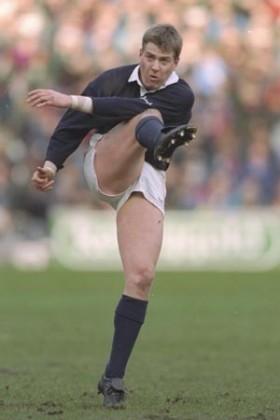
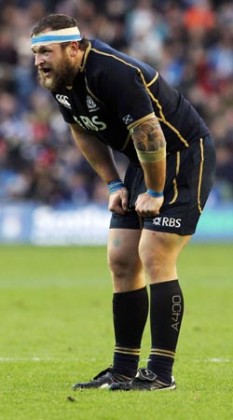


















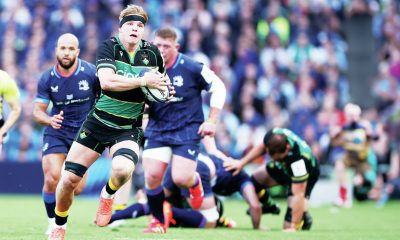

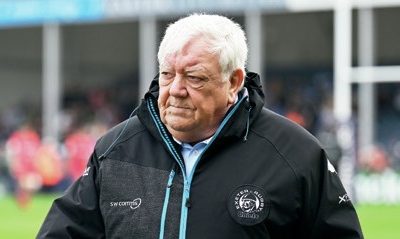

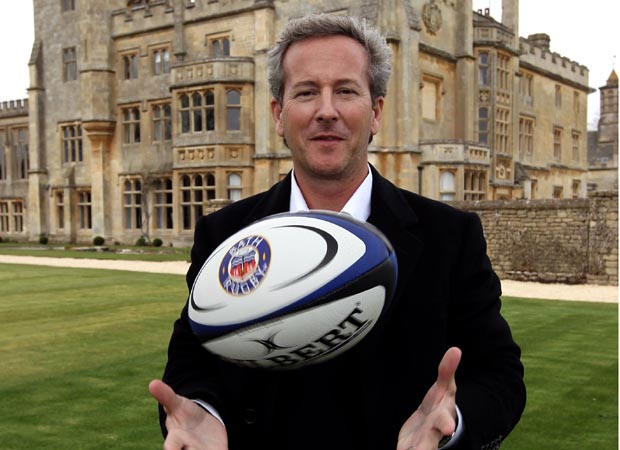
Pingback: jarisakti